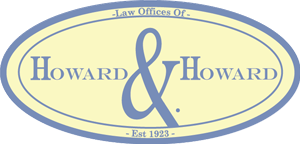Can you sue for a slip and fall? Well, the short answer is: it depends. The fact that your fall happened in Virginia makes it harder to pursue the case than in almost any other state of the union. The rule of pure contributory negligence applies in Virginia, so if you contributed to your accident in any shape, form, or manner, you cannot sue.
The pure contributory negligence rule is a harsh, old law that’s on the books in only a few states and the District of Columbia. But there it is, and so you have to clear the following hurdles to proceed:
- Did you have legitimate reason to be in the location that the accident happened?
- Did you exercise the caution of a reasonable individual as you negotiated your surroundings?
- Was a sign of some sort posted to alert you to hazardous conditions?
- Were you engaging in intemperate, reckless or risky conduct at the time of the fall?
What to do after a slip and fall
First, you cannot be judge, jury and executioner. You’re already the injured party. The above-mentioned elements are what you’d bring to the attorney. Ultimately, counsel can sort out whether you have a case.
Even if zero fault rests with you, there are actions to take to strengthen your position.
You begin the paper trail. Immediately report the accident to the property owner and keep a copy of the accident report for your records.
Immediately seek medical attention so that a timeline can be established and your injuries can be tied to the accident. Keep copies of all medical documentation.
Further, it’s important to gather evidence such as photos of the accident scene and witness statements, if possible. Other evidence for your case includes medical expenses, lost wages if you were unable to work, property damage, transportation expenses to and from medical facilities and home modification costs.
Finally, consider speaking with an attorney as soon as possible and don’t speak with the property’s insurance company. Attorneys are skilled negotiators and better prepared for insurance adjuster’s strategies which are bent on closing the case quickly and reducing the settlement you’re entitled to.

